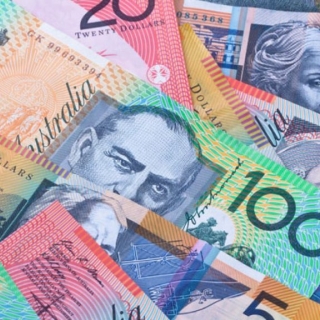


The Australian dollar (AUD) strengthened against the US dollar (USD) this morning after the latest inflation data from the TD Securities–Melbourne Institute (TD-MI) showed a higher-than-expected surge in consumer prices. The monthly inflation index rose 0.4% in September, reversing from a 0.3% decline in the previous month. Annually, inflation now stands at 3%, slightly above the upper end of the Reserve Bank of Australia's (RBA) target range of 2–3%.
This rise in inflation has fueled speculation that the RBA may reconsider its cautious stance on interest rates. Although the RBA held its benchmark interest rate at 3.6% at its meeting last month, it warned that price pressures, particularly in the services sector, remain stubborn. The market is now awaiting speeches by RBA officials this week for clues on the next policy direction.
Analysts predict that if this inflation trend continues, the likelihood of an interest rate hike in the coming months could strengthen. In addition to domestic factors, the weakening US dollar due to political uncertainty and the government shutdown has also provided additional support for the AUD.
With the combination of strong inflation data and unstable global sentiment, the AUD is currently enjoying positive momentum, at least in the short term, as long as there are no surprises from the RBA's policy direction. (az)
Source: Newsmaker.id
The Australian dollar (AUD) held strong at the start of the week after strong Australian inflation data, while the US dollar weakened as market sentiment grew cautious due to the US-Greenland dispute....
The Australian Dollar is the best performer among major currencies in an otherwise calm start tobe the year. The Aussie appreciates nearly 0.5% against the US Dollar in the daily chart, so far, buoyed...
The Australian Dollar (AUD) continued to strengthen against the US Dollar (USD) on Wednesday, posting gains for the third consecutive day. The AUD's strength was driven by the release of the Reserve B...
The AUD/USD currency pair is currently in a bullish consolidation phase, a brief pause in its uptrend, and is hovering around the 0.6600 level during the Asian session on Friday (December 5th). This l...
The Australian Dollar (AUD) rose and reached a three-week high against the US Dollar (USD) during Wednesday's Asian session. This rise occurred despite less-than-satisfactory Australian economic data....
Oil prices stabilized on Thursday (February 12th), as the market reassigned a risk premium to US-Iran tensions despite US inventory data showing swelling domestic supplies. This movement confirms one thing: geopolitical headlines are still more...
Gold prices weakened slightly on Thursday (February 12th), as more solid US employment data reduced market confidence in an imminent Federal Reserve interest rate cut. The strong employment data prompted market participants to shift expectations of...
The Hang Seng Index reversed its downward trend in Hong Kong on Thursday (February 12th), weakening by around 0.9% to around 27,000 after a strong session earlier. This decline halted the momentum of the short term rally, as investors began to...